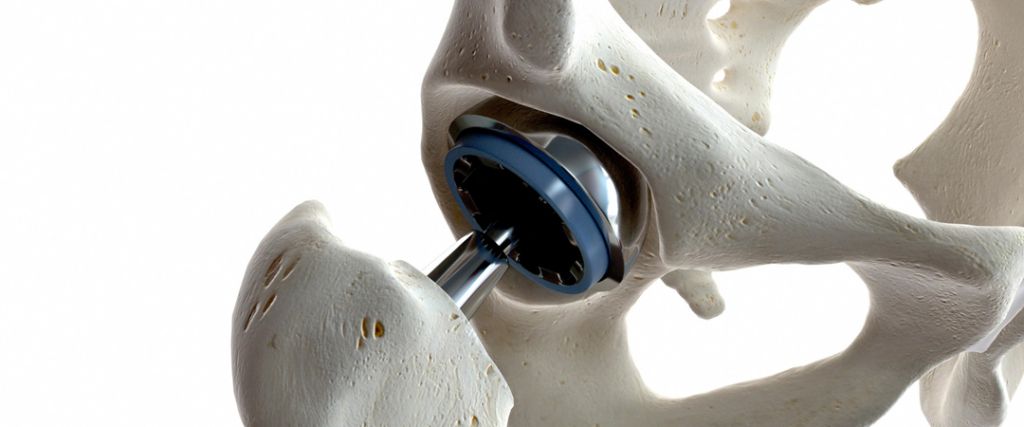
The Mediterranean clinic is at the forefront of orthopaedic surgery, specialising in the placement of total hip replacements that allow our patients to recover quickly and effectively. We are proud to offer innovative solutions that respect the natural dynamics of the human body, guaranteeing improved mobility and a significant reduction in pain.
CONDITIONS TREATED WITH TOTAL HIP REPLACEMENT
Total hip replacement at the Mediterranean is mainly used to treat severe osteoarthritis characterised by the breakdown of articular cartilage. It is also effective in conditions such as avascular necrosis of the femoral head, where loss of blood flow leads to the death of bone tissue, and in cases of hip dysplasia, which involves abnormal formation of the joint. The prosthesis is also an option for people who suffer from inflammatory rheumatism, such as rheumatoid arthritis, which leads to chronic inflammation and joint damage.
KEY BENEFITS OF OUR HIP REPLACEMENTS
Improved mobility: Our implants optimise movement and restore hip function, allowing patients to return to their daily activities with less pain.
Long-term durability: Made from advanced materials, our hip replacements are designed to last, supporting you step-by-step in your activities for years to come.
Integrative design: Each prosthesis is designed to mimic the natural mechanics of the hip, providing exceptional comfort and performance.
Minimally Invasive Surgical Techniques: Our experienced surgeons use the latest minimally invasive techniques, which means faster healing and less time in hospital.
Customisable options: We understand that every patient is unique, so we offer customisable options to meet each patient’s specific needs.
TYPES OF TOTAL HIP REPLACEMENT
There are several types of total hip replacement, each designed to meet different patient needs and physical conditions. Here are the main models offered by the Mediterranean clinic:
Ceramic-on-ceramic prosthesis: This type of prosthesis offers high wear resistance and is ideal for younger, more active patients.
Metal-on-metal prosthesis: Although less commonly used today due to concerns about metal ion release, this option may still be appropriate for some patients.
Metal-on-polyethylene prosthesis: This is the most traditional type of hip replacement and is known for its effectiveness and durability.
Ceramic on polyethylene: This combination reduces the risk of wear and is often preferred for its longevity.
Each prosthesis is selected after a thorough assessment of the patient’s condition, activity level and specific recovery goals.

WHY A TOTAL HIP REPLACEMENT?
The decision to have a total hip replacement is often motivated by the need to improve the patient’s quality of life. This may be due to unbearable chronic pain, severe joint stiffness or a significant loss of mobility caused by conditions such as arthritis or trauma. The aim of the operation is to restore the functionality of the joint, enabling the patient to resume daily activities without pain and preventing the joint problems from getting worse. Total hip replacement is considered a safe and effective procedure for treating severe joint problems, with a high success rate and long-lasting results.
INDICATIONS FOR HIP REPLACEMENT
Indications for hip replacement surgery may vary depending on age, physical condition and other patient-specific factors. It’s important to discuss the potential benefits and risks with your doctor before making a decision.
WHAT YOU NEED TO KNOW BEFORE SURGERY
Before having a total hip replacement, it’s important to understand the risks and possible complications, as well as the recovery process and post-operative care. Your doctor will also explain how to prepare for the operation, including any dietary or medication restrictions you need to follow before surgery. It’s also important to discuss realistic expectations for results and quality of life after surgery.
THE IMPLANTATION PROCESS:
A total hip replacement replaces the damaged part of the femur and pelvis with artificial metal and plastic components. The implantation can be done either through an open procedure, which involves a larger incision in the hip, or through a minimally invasive technique, which uses small incisions and specialised equipment to access the joint. The choice of method depends on the patient’s condition and the doctor’s preference.
POST-OPERATIVE CARE
After hip replacement surgery, it’s important to follow your doctor’s instructions to speed up healing and minimise possible complications. This may include wearing a brace or using crutches for a period of time, and following a rehabilitation programme to strengthen muscles and improve hip mobility. Activities to avoid during your recovery will also be discussed with your doctor, as will the length of your hospital stay and the medications you will need to take to control pain and prevent infection.
OUR COMMITMENT:
At the Mediterranean clinic, we are committed to providing exceptional care through innovative surgical practices and unparalleled patient support. We are committed to working with patients and healthcare professionals to provide personalised solutions that change lives.
With a team of renowned orthopaedic surgeons, you can expect a patient-centred experience focused on safety, quality and excellent outcomes.
If you are considering a hip replacement or are a healthcare professional looking for reliable information for your patients, contact The Mediterranean clinic to find out how our hip replacement services can help restore mobility and improve quality of life.
For more information and to make an appointment, please visit our website or contact our office directly.

